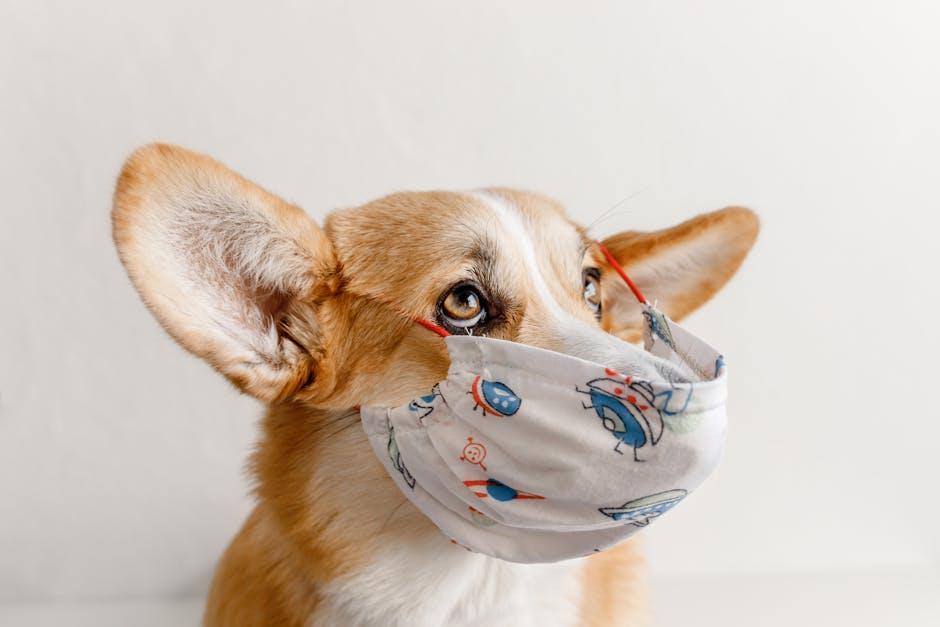Welcoming a puppy into your home is an exciting and joyful experience, filled with wagging tails, playful antics, and endless cuddles. As a new pet parent, you naturally want to ensure your furry friend grows up healthy and strong. One of the most important aspects of your puppy’s well-being is a robust immune system, which serves as their primary defense against illness and infection. In this guide, we’ll explore essential puppy health tips designed to bolster their immune system, ensuring they thrive during these formative months and beyond. From balanced nutrition to regular veterinary care, we’ll cover practical advice that can help your puppy develop the resilience they need for a happy, energetic life. So, let’s embark on this journey together to nurture your puppy’s health with love and care.
Understanding Your Puppys Nutritional Needs
Ensuring your puppy receives the right nutrients is essential for building a robust immune system and promoting overall health. During the early months, your puppy’s body is growing rapidly, and it requires a balanced diet rich in essential nutrients. Protein is vital for muscle development and repair, while fats provide the energy necessary for their playful antics. Calcium and phosphorus are crucial for developing strong bones and teeth. Don’t forget about vitamins and minerals, which support various bodily functions and contribute to a shiny coat and healthy skin.
When planning your puppy’s diet, consider incorporating the following:
- High-quality puppy food: Choose a reputable brand that offers complete and balanced nutrition tailored for puppies.
- Fresh water: Always ensure your puppy has access to clean, fresh water to stay hydrated.
- Natural treats: Use treats that are free from artificial additives to encourage good behavior without compromising their health.
- Supplementation: If recommended by your vet, consider supplements like omega-3 fatty acids for additional support.
By focusing on a nutrient-rich diet, you’re laying the foundation for your puppy’s healthy and happy life. Tailor their meals to support their growth and immune system, and you’ll see them thrive as they transition into adulthood.

Incorporating Exercise and Play into Daily Routines
To ensure your puppy grows up with a robust immune system, integrating both exercise and play into their daily life is essential. These activities not only keep them physically fit but also contribute to their mental well-being. Aim for a balanced routine that includes a mix of structured exercise and free play. This can help your puppy develop coordination, agility, and strength while also providing mental stimulation.
- Daily Walks: Take your puppy on regular walks. Start with short distances and gradually increase as they grow.
- Interactive Toys: Use toys that engage their mind, such as puzzle feeders or treat-dispensing balls.
- Play Dates: Arrange safe play sessions with other vaccinated puppies to encourage socialization and build their confidence.
- Training Sessions: Incorporate short training sessions using positive reinforcement to teach new commands and tricks.
Remember: Always pay attention to your puppy’s cues. If they seem tired, give them a break. Their developing bodies need time to rest and recover just as much as they need activity.

The Role of Vaccinations in Immune Health
Ensuring your puppy receives vaccinations is crucial in fortifying their immune system against a myriad of diseases. Vaccines work by stimulating the immune system to recognize and combat pathogens, like viruses and bacteria. This process not only helps prevent illnesses but also strengthens your puppy’s natural defenses. Key vaccinations for puppies typically include those for distemper, parvovirus, hepatitis, and rabies. It’s essential to follow the vaccination schedule recommended by your veterinarian to provide your puppy with the best protection.
- Distemper: Protects against a highly contagious and potentially fatal virus.
- Parvovirus: Shields your puppy from a severe gastrointestinal illness.
- Hepatitis: Guards against infectious canine hepatitis, affecting the liver.
- Rabies: A legally required vaccine that protects against a deadly virus transmissible to humans.
In addition to these core vaccines, your vet may recommend others based on your puppy’s lifestyle and environment, such as vaccines for kennel cough or Lyme disease. Remember, a well-vaccinated puppy is a healthy puppy, paving the way for a long, happy life.
Creating a Stress-Free Environment for Your Puppy
Fostering a serene atmosphere for your puppy is essential to their well-being and immune health. Puppies, like humans, can experience stress, which can weaken their immune system. To help your furry friend thrive, focus on creating a nurturing and calm environment. Here are some practical tips:
- Safe Space: Ensure your puppy has a designated area where they feel secure and can retreat to when overwhelmed. This could be a cozy bed or a quiet corner of your home.
- Routine and Consistency: Establish a consistent daily routine for feeding, walks, and playtime. Predictability helps reduce anxiety and builds trust.
- Gentle Socialization: Gradually introduce your puppy to new experiences, people, and other animals. Controlled exposure helps them become well-adjusted without feeling stressed.
- Soothing Sounds: Play calming music or nature sounds to create a peaceful ambiance. This can be particularly helpful during times of potential stress, like thunderstorms or fireworks.
- Aromatherapy: Consider using pet-safe essential oils like lavender or chamomile to help relax your puppy. Always consult with a veterinarian before introducing new scents.
By focusing on these elements, you’ll be setting a solid foundation for your puppy’s mental and physical health, ultimately supporting a robust immune system.
















